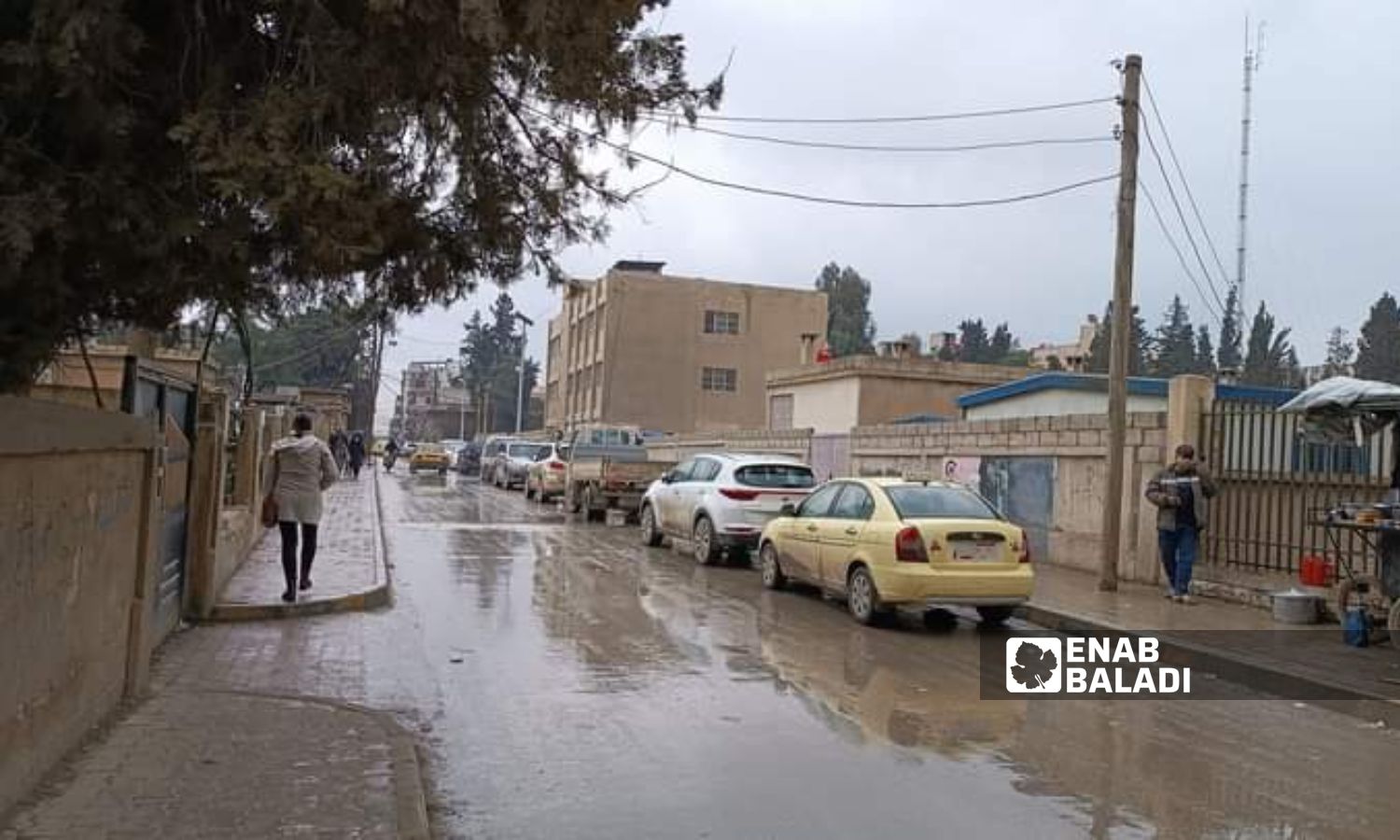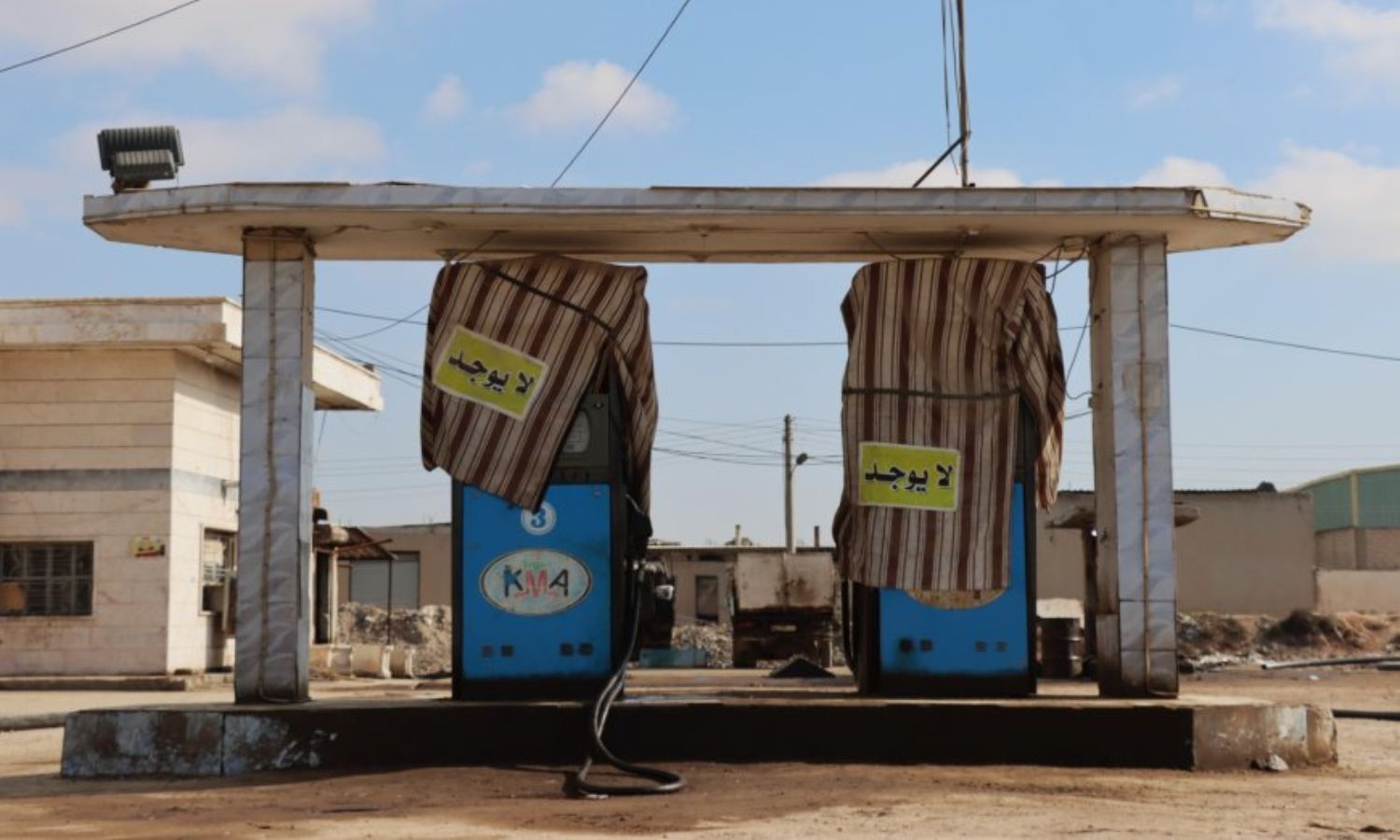



The city of Qamishli, in northeastern Syria, where the Autonomous Administration is in control, is suffering from a severe crisis in fuel supplies that has cast its shadow over the local transport sector. Public transport buses and taxis have ceased operation, affected by the ongoing crisis.
Due to the fuel shortage in the city’s markets, car owners have had no choice but to park their vehicles aside or reduce working hours, according to some who spoke to Enab Baladi, especially since the Autonomous Administration has not yet delivered their weekly fuel allocations.
Sanad Abdul-Muati (49 years old), a taxi driver on the Karajat line in the city of Qamishli, expressed his annoyance with the challenges he faces as a result of the delay in receiving his vehicle’s fuel allocations since the start of the current year.
He told Enab Baladi that he had not received any gasoline allocations for more than ten days, forcing him to buy fuel from the black market at a price of 7000 Syrian pounds per liter of diesel.
Under these circumstances, Abdul-Muati had to reduce his working hours to save on fuel consumption, pointing out that the current situation has negatively affected his financial income, although he had been making a good profit during the winter season.
According to Hawar news agency, close to the Autonomous Administration, the movement of private and public transport is threatened with paralysis after forming queues of cars at fuel stations in al-Hasakah city, stretching for more than three kilometers, in hopes of obtaining their fuel allocations.
Hawar attributed the crisis to the Turkish bombing campaign that hit the area over a week ago, targeting vital facilities in northeastern Syria.

A fuel station stopped working due to a lack of fuel supply in areas under the control of the Autonomous Administration – January 26, 2024 (Hawar)
Yasin Ahmed, 55, is a taxi owner working on the Corniche line in Qamishli. He, like other drivers, faces difficulties due to his vehicle’s cessation of operation because of the continuous fuel shortage in the region.
Ahmed told Enab Baladi that he cannot drive his own car due to his old age, so he decided to employ a driver to manage the car and share the daily profits with him. For over 20 days, his car has been out of service due to a severe shortage in fuel supplies in the area, leaving him to face a financial crisis.
He added that the driver had to quit working on the taxi, as he could not wait in the long queues for fuel in Qamishli, which may extend from 3 am until noon the same day.
Previously, Ahmed would receive gasoline allocations once every 15 days, amounting to 40 liters each time, at a price of 1800 Syrian pounds per liter, but since the beginning of the current year, he has not received any fuel allocations, forcing him to purchase from the black market at a price of 7000 Syrian pounds.
The increase in fuel prices makes it difficult to realize profits from his work as a taxi driver, according to what he told Enab Baladi, which led him to stop his car and leave it in front of his house without generating any financial income for his family.
An official source at the Fuel Authority, affiliated with the Autonomous Administration of North and East Syria (AANES), who preferred to remain anonymous as he was not authorized to speak to the media without prior permission, told Enab Baladi that the northeastern region of Syria is experiencing a fuel crisis after oil facilities went out of service due to Turkish bombing witnessed by the region.
He added that AANES is seeking to find temporary solutions to disentangle the standing crisis. It is currently working on importing gas from northern Iraq and providing it in the local market at a price of ten dollars per gas cylinder.
The source noted that these steps would serve as temporary solutions until the gas pipelines are repaired.
Previously, the co-president of the General Administration of Oil and Fuels in AANES, Abeer Khalid, on January 16, stated that Turkish bombardment resulted in oil facilities going out of service, including the al-Owda and Karbi stations, and the al-Tafleh refinery, in addition to the al-Suwaydiya gas plant.
The disruption of these facilities has reduced fuel supplies to the sectors of energy, water, agriculture, and heating.
if you think the article contain wrong information or you have additional details Send Correction